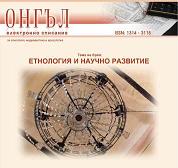Визуални маркери на памет в градското пространство
Visual Markers of Memory in the Urban Space
Author(s): Svetlana TonchevaSubject(s): Cultural Essay, Political Essay, Societal Essay
Published by: Асоциация за антропология, етнология и фолклористика ОНГЬЛ
Summary/Abstract: In the beginning of XXI c., when the screen is the main information source and images are all around us, the dissertation paper “Visual markers of memory in urban space (on materials from the town of Rousse)” makes an attempt to put into this context the concepts about a Bulgarian city. The text endeavors to show the significant places, which determine the urban space as a specific one and generalize its most important characteristics. The basic thesis claims that the markers of memory in Rousse are defined according to the predetermined city constructs such as “modern”, “European”, “aristocratic” and “generationally successive” (which, chronologically, date back from the end of XIX c., when the city changed its oriental image, and, geographically, come from its connection with the river Danube – a link to the foreign lifestyle). The method of analysis passes in the light of visual, as it has been a typical characteristic of the contemporary society since modern times and today is a major data base for information and memory transitions. The visual hereby is, first, a preferable source (newspapers, magazines, photos, postcards, mental maps) and, second, considered to be a form of communication, typical for a given urban zone (centripetal for the center; centrifugal for the quay; mixed for the city park). In the dissertation paper the memorialized urban zones and their particular elements prove to be places of vitality, dynamics, happenings, which makes them important for such quickly transforming structures as the city and the memory.
Journal: Електронно списание »Онгъл«
- Issue Year: 2010
- Issue No: 2
- Page Range: 135-145
- Page Count: 11
- Language: Bulgarian

